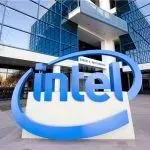Fitch Ratings has downgraded Intel’s default rating from BBB+ to BBB which is two notches above junk credit status.
Fitch cited several key reasons for the downgrade:
-
A more challenging demand environment than previously anticipated, hurting Intel’s profitability.
-
Weak credit metrics, with an EBITDA leverage ratio of 5.0x exiting 2024, projected to decline to 4.0x in 2025, but needing to reach 2.5x for a rating recovery.
-
High execution risks related to Intel’s technology roadmap and foundry strategy.
-
Intense competition from peers such as AMD, Broadcom, NXP
 Semiconductors, Qualcomm, and AMD, especially in PCs and artificial intelligence.
Semiconductors, Qualcomm, and AMD, especially in PCs and artificial intelligence. -
A relatively weaker financial structure compared to similarly rated peers.
-
Need for stronger end markets, successful product ramps (notably the new 18A chip technology), and debt reduction over the next 12-24 months to improve credit metrics.
-
Intel’s liquidity profile was described as solid, supported by significant cash reserves and credit lines consisting of a $21.2 billion mix of cash, cash equivalents and short-term investments, as well as an untapped $7 billion credit revolver. It also has an undrawn $5 billion, 364-day revolver that will come due in January 2026.
’Intel’s product lineup will limit its ability to benefit from robust AI growth,” says Fitch, “Intel’s AI strategy remains unclear and depends on a systems and software approach, an area where the company has traditionally been weak or absent. While Intel has solid positions in AI host nodes and storage, developing a full stack AI solution for the server-side market will take time.”
Fitch warned that Intel’s ability to recover its previous rating hinges on improved demand, product success, and deleveraging.”
